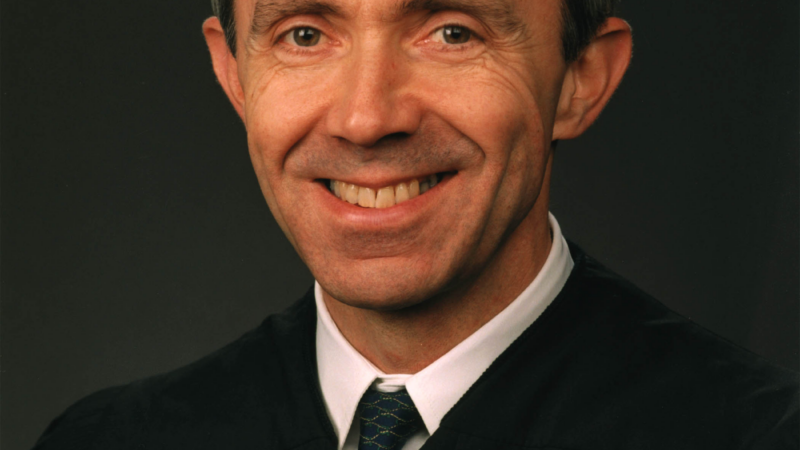Former Supreme Court Justice David Souter dies at 85
Former Justice David Souter, who appointed to the Supreme Court by President George H. W. Bush in 1990 but surprised Republicans by joining the court’s more liberal wing, has died his home in New Hampshire, the court announced Friday. He was 85.
“Justice David Souter served our Court with great distinction for nearly twenty years,” Chief Justice John Roberts said in the statement from the court. “He brought uncommon wisdom and kindness to a lifetime of public service.”
At the time of his retirement from the court, Souter was 69 and nowhere near the oldest member of the court. But he had made clear to friends at the time that he wanted to leave Washington, a city he never liked, and return to his native New Hampshire.
Souter was a graduate of both Harvard College and Harvard Law School. He also attended Magdalen College at Oxford University. But his academic pedigree was only one reason he had been regarded as a thinking man’s jurist and a highly thoughtful conservative prior to his elevation to the nation’s highest bench.
Once appointed and confirmed, he soon became a “surprise justice.” He bucked the expectation that he would join the court’s conservative wing — then led by Chief Justice William Rehnquist, who was appointed to the court by President Nixon and elevated to chief by President Reagan, and featuring Reagan appointees Antonin Scalia and Anthony Kennedy.
The appointing president had been assured of Souter’s credentials by the White House chief of staff, John Sununu, who had known Souter as a conservative member of the New Hampshire Supreme Court when Sununu was that state’s Republican governor.
But when confronted by the ideological debates and partisan landscape of Washington, Souter surprised both Sununu and Bush by aligning himself with the court’s more moderate wing, which also included Reagan appointee Sandra Day O’Connor.
Later on, Souter became a full-fledged member of the court’s unabashedly liberal caucus, featuring yet another Republican, John Paul Stevens (appointed by President Ford in 1975).
Souter was unconventional in other ways beyond his ideological independence. He moved to Washington to attend court sessions, but he returned to his beloved roots in New Hampshire whenever possible, including for the court’s long summer hiatus each year.
Rather than fly home, Souter preferred to drive. He also resisted other forms of contemporary technology and convenience, holding out against the cell phone and e-mail and continuing to write his opinions and dissents in longhand, using a fountain pen.
Once engaged but never married, Souter was once listed among the capital’s 10 “most eligible bachelors” but remained in that category of “confirmed bachelors.”
He was never a creature of the capital city’s social scene, living in a spartan apartment in the city not far from the Supreme Court offices on Capitol Hill. Although he served nearly two decades on the high court, he made no secret of his preference for the lifestyle and pace of his native rural New Hampshire.
U.S. unexpectedly adds 130,000 jobs in January after a weak 2025
U.S. employers added 130,000 jobs in January as the unemployment rate dipped to 4.3% from 4.4% in December. Annual revisions show that job growth last year was far weaker than initially reported.
Greetings from Mexico City’s iconic boulevard, where a dog on a bike steals the show
Every week, more than 100,000 people ride bikes, skates and rollerblades past some of the best-known parts of Mexico's capital. And sometimes their dogs join them too.
February may be short on days — but it boasts a long list of new books
The shortest month of the year is packed with highly anticipated new releases, including books from Michael Pollan, Tayari Jones and the late Nobel laureate Mario Vargas Llosa.
Shootings at school and home in British Columbia, Canada, leave 10 dead
A shooting at a school in British Columbia left seven people dead, while two more were found dead at a nearby home, authorities said. A woman who police believe to be the shooter also was killed.
Trump’s EPA plans to end a key climate pollution regulation
The Environmental Protection Agency is eliminating a Clean Air Act finding from 2009 that is the basis for much of the federal government's actions to rein in climate change.
The U.S. claims China is conducting secret nuclear tests. Here’s what that means
The allegations were leveled by U.S. officials late last week. Arms control experts worry that norms against nuclear testing are unraveling.







